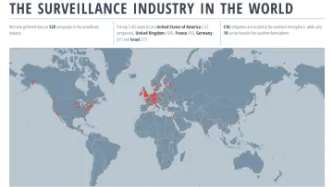
…it can ensure that the law is applied in the same manner to everyone
The law is the same for everyone and should be applied in the same manner to all.

Discriminatory laws on the basis of sexual orientation across the globe exist in stark opposition to the principle that the law should be the same for each and every one of us. We are all entitled to the same protections against any discrimination. Equality before the law dictates that there must be a reasonable justification to regulate any aspect of a person’s life.
Laws discriminating on the basis of sexual orientation interfere with our private lives and development. There can be no justification for criminalising the consensual sexual behaviour of adults in private. Heterosexuals are not regulated in the same manner.
The changes in the UK and Irish criminal law codes demonstrate the link between the two. In the UK, the Criminal Law amendment Act 1885 provided that any ‘homosexual activity’ between men was illegal. Alan Turing and Michael Pitt-Rivers, amongst others, were actually tried under this provision. Eventually, the government commissioned a report, known as the Wolfenden report, to consider the revision of “homosexual offences and prostitution.” The report, released in 1957, held that there must be a private realm of morality, which is not the law’s business and recommended that ‘homosexual acts’ between two consenting adults should no longer be a criminal offence. Eventually that lead to the decriminalisation of sex between men.
A few years later in Northern Ireland, in 1981, Jeff Dudgeon brought the first successful case against the criminalisation of sex between men before the European Court of Human Rights. The Court held that private sexual conduct, which is a vital element of an individual’s personal sphere, cannot be prohibited merely because it may shock or offend others. This case set the legal precedent that ultimately resulted in the requirement that no Council of Europe member state could criminalise homosexual behaviour.
There is still a long way to go at a global level, as of 2019, 70 UN member states still criminalise gay sex. However, privacy still paves the way forward. In India, the biggest democratic state in the world, the colonial era law criminalising homosexuality was overturned in 2018. The Supreme Court stated in their judgement that “sexual orientation is an essential attribute of privacy” and as a result, discrimination on the basis of sexual orientation was unconstitutional.
All are equal before the law and are entitled without any discrimination to equal protection of the law. All are entitled to equal protection against any discrimination in violation of this Declaration and against any incitement to such discrimination. Article 7, Right to equality before the law
* Photo by Tallie Robinson on Unsplash



